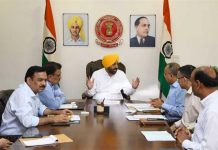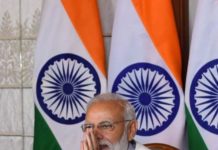
The movie, Inception, confused most viewers. With its concepts of ‘shared dreams’ and ‘layered dreams’, it muddled the minds of those who watched it. However, the Indian businessmen loved it. The reason: it articulated what they had successfully honed and practised for decades in real life.
Big business doesn’t need shared dreams to infiltrate the conscious or subconscious of their targets to extract information and influence their decisions. They can do it openly, but secretively, while the individuals are awake. It doesn’t require layered dreams. What it needs are layered manipulations in real time.
The real world of corporate lobbyists, just like Inception, works at several levels, both vertically from the bottom to top or vice versa, and horizontally across institutions, government departments and ministries.
Everyone, who plays a role in the democratic decision-making process, is on the radar. No one can filter through the worldwide web of networks and favours that the lobbyists create and nurture. This is evident from the emails leaked by a whistle blower, who worked with the Essar Group, which has interests in energy, steel, mining, power and other sectors. The emails are part of a public interest litigation (PIL) petition filed in the Supreme Court.
Big business, through its myriad of operators, subverts the four pillars of democracy; it rots and rusts the system from within. Nothing is left to chance; every move is calculated, calibrated and coordinated to maximise the impact.
The Essar emails prove how the lobbyists’ objectives are achieved through manipulations within the legislature, executive and media. Every politician, bureaucrat and journalist is tracked and trapped, by honest or unfair means, to force him or her to deliver results for the conglomerate. Only a few can escape this octopus’ tentacles.

Dealing against Maoists
This story starts in the wild, untamed and violent Maoist belt in the eastern states such as Odisha and Chhattisgarh. The Essar Group owns iron ore mines there and supplies them from its beneficiation unit near Kirandul (Chhattisgarh) to its pellet unit in Visakhapatnam (Andhra Pradesh).
The slurry is pumped through a 267-kilometre-long pipeline, the second longest in the world, and passes through Odisha. The Maoists regularly target the pipeline; they damaged it in October 2011. In 2013, an Essar spokesperson told a journalist, “We are continuing our efforts to repair the pipeline and ensure its continued operations thereafter. This is our priority.”
It wasn’t surprising that in October 2013, Essar’s lobbyists met VC Sajjanar, Director General (Special Intelligence) of Chhattisgarh, at the latter’s office. The subject of the discussion was whether the government could deploy the CRPF (Central Reserve Police Force) to help the company to repair its slurry pipeline.
According to one of the emails, Sajjanar agreed to do so but wondered aloud if there was any “guarantee that the insiders (Maoists) would not damage the same again”. He maintained that he could not provide 24×7 security and that “there were no guidelines available to deploy CRPF on payment basis for a corporate entity. Only CISF (Central Industrial Security Force) could be made available on payment basis and that too on a stationary location”.
However, the DG came up with an alternative solution. He urged Essar to spend its CSR (Corporate Social Responsibility) funds to woo the local communities and help the government lay an alternative 16-20 km road as a part of it. As Essar lobbyists reported to their headquarters, “He (Sajjanar) would then deploy armed CRPF on those critical locations. We need not have to pay for the deployment then. It would be a one-time expenditure, which will be around Rs 12-15 crore. Moreover, he said we would make this as an initiative of the government without exposing our name.”
Given this security issue, Essar maintained proximity with the intelligence, the police forces and the local administration. In December 2012, one of its managers met DC Mishra, Commissioner, Bastar (Chhattisgarh), to ask him if the company could divide its CSR funds in two areas of the state — Sukma and Dantewada. Mishra asked Essar to send the formal letter and also requested for accommodation and transportation during his forthcoming visit to Delhi. Subsequently, Mishra sought a cab for a two-day visit to Gwalior. Essar was willing to please him.
In July 2013, an Essar manager met Girdhari Nayak, Director General of Police (Jail), Chhattisgarh, for a cup of tea. “During the meeting, he (Nayak) demanded some financial help (Rupees two lakh) from us for sponsoring six students of National Law University, Raipur,” wrote the manager. The email added, “It is possible that he may be posted as regular DGP after retirement of present DGP Mr Ramnivas after six months”. In less than half an hour, Essar’s Mumbai headquarters responded: “We should do this, as he (Nayak) is going to be the DGP, Chhattisgarh, from January 2014 and has more than seven years of service. Make it (loan) a CSR activity.”
Even low-level officials are kept in good humour because they can sit on files or delay matters. So, Essar’s lobbyists would visit the land branch collector’s office to follow up on the “recommendation of 151 hect govt land for Refinery expansion/certificate u/s (under section) 55 (sic.)” They would call the Mamlatdar’s office to arrange “reports on govt/gauchar land falling under refinery expansion (sic.)” They would talk to officials in Gujarat Water Infrastructure Limited on issues related to the supply of the Narmada water to Essar’s refinery and power plants in Gujarat. They would engage in discussions with secretaries in the chief minister’s office to discuss “the notice issued by the tehsildar to stop coal transportation”.
Dealing with Maoists
In September 2011, the Dantewada police arrested DVCS Varma, general manager, Essar Group, and charged him with paying ‘protection’ money to the Maoists. This was after the arrest of BK Lala, a contractor who worked for Essar and was carrying Rs 15 lakh to pay the Maoists. Others named in the racket were Jai Johar, a non-government organization (NGO) managed by the Dubey brothers and which was funded by Essar to do its CSR activities, and Lingaram Kodopi, an associate of the Maoists. Earlier, diplomatic cables leaked by WikiLeaks, hinted at a nexus between Indian businesses and the Maoists. A cable dated 11 January 2010 said that Essar “pays the Maoists ‘a significant amount’ not to harm or interfere with their operations” in Chhattisgarh and Odisha.
The case took a shocking twist when the police arrested Kodopi’s aunt, Soni Sori, in Delhi. It was alleged that Sori, an adivasi schoolteacher, who worked with some activists in Dantewada, used Kodopi for the illegal money exchanges. However, in February 2014, the Supreme Court granted bail to Sori and Kodopi after the Chhattisgarh High Court had denied it. In fact, the Sori case prompted several activists in the area to start free and cheap legal aid services to protect the rights of the local communities. As one of them said, “This was born out of a realisation that the justice system in Bastar is dominated by a ‘security-minded’ approach.”
(It must be mentioned that Tehelka magazine figured in the Essar emails. Nancy Jain, a former deputy general manager, Essar Group, wrote an email that the group’s corporate communications department coordinated with journalists from several newspapers and magazines, including Tehelka, to plant articles. There were three instances that hinted at possible links between Essar and the magazine. First, Tehelka published a pro-Sori cover story in 2012. The previous year, Essar sponsored the magazine’s annual event, ThinkFest, in Goa. Finally, the magazine questioned the ‘madness’ of the CBI in the manner in which it was investigating the 2G telecom scam. However, the bail granted to Sori and subsequent developments in the telecom scandal vindicated Tehelka.)

Climbing the executive ladder
The general perception is that big business interacts only with senior bureaucrats at the Centre. Since the corporate owners and senior managers personally know the officials, they can extract all information and influence government policies and decisions. However, this is not true. Through a fleet of lobbyists, big businesses try to network with officials along the executive hierarchical chain – from the head clerk, section officer, under secretary, secretary and even the personal secretary and personal assistant to the minister.
The relationships that are built at several vertical and horizontal levels help the companies to extricate varying favours, possibly in exchange of material reciprocation. Such a huge network enables the owners to track the progress of files and licences, influence future policies, gather corporate and bureaucratic intelligence and seek information on general operational matters. Some of the meetings and discussions are courtesy calls to build future relationships and also use the officials if the need arises later. Members, joint secretaries and assistant registrars in judicial bodies such as the Customs, Excise and Service Tax Appellate Tribunal (and the review tribunal) are also tracked.
For instance, an additional industrial adviser in the Union steel ministry was met to check the status of the Licence No. 5210037639. A head clerk in the mining ministry was pursued to check “mining lease matters”. An adviser in the environment ministry was spoken to about a notification related to the economic sensitive zone (ESZ). The Essar Group discussed ways to keep certain areas, including dry rivers and nullahs, out of the ESZ. A personal secretary to the joint secretary (thermal) in the Union power ministry revealed that no decision was taken in the gas-pooling meeting held a week ago but he gave an Essar manager a copy of a note that the ministry had prepared for the Prime Minister’s Office (PMO).
Market intelligence can come in different forms. It could be a proposed meeting between the coal secretary and the PMO to go through the files on coal block allocations. Or, it could be that the coal ministry was expected to issue show-cause notices to all those who had got the allocations but “where development work has not taken place”. An under secretary in the mining ministry told Essar that the Cabinet was to “examine changes” in the mining Act “vis-a-vis (mining) royalty”. A member of the now-disbanded Planning Commission (renamed as Niti Aayog) said that it had asked the industry ministry to explore “bottlenecks” in greenfield steel plants.
Bear-hugging Parliament
Parliamentarians, whether seasoned, first-timers, young and little-known help big business in several ways. Members of Parliament (MPs), who are close to or friends with corporate owners can ask sensitive and crucial questions in the two Houses, intervene in policy debates, write collective letters on issues and cajole and nudge ministers and senior party leaders to tweak government decisions. Therefore, each business house attempts to woo as many MPs as possible and from most of the national and regional political parties. Everyone is a friend, if he or she doesn’t choose to be an enemy.
An Essar’s inter-office memo (dated June 2009) is revealing. “With the new UPA (United Progressive Alliance) govt taking over at Centre and their fresh innings starting, this is an opportune moment for us to invest on right people at right places for reaping long term benefits. I have noticed that quite a lot of them, especially the young Parliamentarians, are techno-savvy and they prefer to communicate over emails, and ‘SMS’…. I propose to gift about 200 top-end cell phones to some of these esteemed leaders, and also some of the top bureaucrats. These phones will have SIM cards supported by us by about Rs 5,000 per month (sic.)”
First-timers and young MPs are easy targets. Here is a list of the under-40 Parliamentarians in the previous (15th) Lok Sabha, whose names figure in the various Essar emails:
♦ Bhavana Gawali, born 1973, Shiv Sena, elected from Yavatmal-Washim in Maharashtra
♦ Muhammed Hamdullah Sayeed, born 1982, Congress, Lakshadweep
♦ Pradeep Kumar Majhi, born 1976, Congress, elected from Nabrangpur in Odisha, asked 1150 questions in the 15th Lok Sabha
♦ Sameer Magan Bhujbal, born 1973, Nationalist Congress Party, elected from Nashik in Maharashtra, a nephew of Chhagan Bhujbal, a former Maharashtra minister
♦ Kamlesh Paswan, born 1976, BJP, elected from Bansgaon in Uttar Pradesh
♦ Sarika Devendra Singh, born 1980, Rashtriya Lok Dal, elected from Hathras in Uttar Pradesh
Senior MPs, past and present, are wooed through global holidays or jobs to their friends and relatives. In July 2013, Essar hosted nine guests, including BJP leader Nitin Gadkari and his family, on its luxury yacht, Sunrays, which was docked near Nice, France. As per the itinerary, Gadkari’s entourage would depart from Oslo (Norway) for Frankfurt (Germany) and subsequently to Nice. An Essar helicopter would transfer them to Sunrays by the afternoon. They stayed the night on the yacht, had a full cruise the next day and departed the same evening. One of the emails reiterated that all the guests were “vegetarian and prefer Asian vegetarian that is Indian veg, Chinese veg etc (sic.)”
Gadkari, who is now the Union transport minister, admitted that he took the favour but he maintained that he was not an MP, a cabinet minister or even the BJP president at the time. His tenure as BJP president ended in January 2013. Surprisingly, when the Essar scandal was exposed recently, the BJP didn’t come out in support of Gadkari. It didn’t give an explanation on the obvious nexus between big business and politics. Other prominent leaders such as a former Union coal minister Sriprakash Jaiswal, Congress leader Digvijay Singh and BJP MP Varun Gandhi referred candidates for jobs in the Essar Group.
An email said that “these requisitions (for jobs) are from VVIPs and cannot be ignored… none of them are high cost resources — in most cases fresher — and we should appoint them on probation for a period of six months, thereafter a call can be taken to retain/release them depending on their ability (sic.)” It was indeed taken seriously. Another email said that “as a first step we should immediately get the candidates interviewed and see how many of them can be accommodated in the system on merits…. This is required to be done on priority.”
Media circus
Journalists are important cogs in the lobbying wheel. They are the ones who grease the various wheels within wheels to initiate and force actions and decisions. Planted stories in newspapers and magazines provide credible tools to big business to lobby with the Legislature and the Executive and sometimes the Judiciary, too. Such pieces can be waved by MPs in Parliament, which can lead to debates and discussions. Therefore, wooing media persons is an integral part of the business.
This can happen in the form of providing taxis for the hacks or their family members or giving corporate guesthouses to them to host parties or in the form of Diwali, birthday, anniversary or New Year gifts. But some of them extract a larger pound of flesh. For example, one of them was peeved that his firm wasn’t getting too many contracts from the Essar Group. He tried to blackmail the group by pointing out several irregularities it had committed in east India. An email insisted that Black Label whisky should be provided at the journalist’s party.
Two examples are enough to prove how the combustible mix of planted stories in the media and Parliament questions can work beautifully in favour of the corporate owners. The first related to the comprehensive economic partnership agreements (CEPAs) that India signed with South Korea and Japan. Under the two CEPAs, India agreed to eliminate customs duties on 75 per cent of the products, including steel. Although the “cost of production (of steel) is around the same in both Korea & Japan vis-a-vis India, the Korean and Japanese steel producers have an upper hand… because of various fiscal incentives and soft interest rate regime extended by their respective governments (sic),” said a 2012 email.
Essar, which is one of the largest domestic steel producers, feared that cheap imports from the two nations would adversely impact its business. Therefore, it wanted the government to move steel into the ‘sensitive’ list for exclusion under the CEPAs. It roped in industry associations – CII, FICCI and Assocham – to write letters to the steel ministry, planned to plant Parliament questions and also planted media stories, which could then be sent to the ministry.
However, these attempts failed. In September 2012, the then steel minister, Beni Prasad Verma, rejected the demand. He said that under the WTO (World Trade Organisation), customs duties needed to be reduced to zero by 2025. “You (domestic steel sector) have to lower operation cost, raise competency level and deploy latest technology. Only then, your cost of production will come down,” Verma added.
The second issue related to the prices of iron ore (raw material) sold by the state-owned National Mineral Development Corporation (NMDC). In an August 2012 email, Essar said that it wanted to plant stories that revolved around questions like the number of times the nmdc hiked prices since 2010, the impact on the steel sector, and whether the hikes were in tandem with the global scenario. The email added: “[We] also need to highlight that whenever there is an increase in the steel price, the PMO, MoF(finance ministry) and MoS(steel ministry) get after the steel producers… whereas (they) keep their mouth shut whenever NMDC increased the price of iron ore (sic.)”
Essar met a journalist from The Indian Express, which “wanted a write-up… not exceeding 1,000 word and also quotes from Essar, JSW (Jindal Steel Works), RINL (Rashtriya Ispat) and Welspun…. I am managing quotes from respective companies. Request you to kindly send a write-up — hard hitting…. An early action will keep pressure on nmdc, as the questions planted in the Parliament will be heard on 27 August, 2012.” However, the newspaper has since said that it did not publish such an article. What were indeed published were pieces written by news agencies, which were carried by several newspapers, including The Indian Express, two days before the email.
Like other business groups, Essar tried to shake the foundations of three of the four pillars of a democracy — the Legislature, the Executive and the Press. Corporate lobbying, as the Essar leaks prove, has a seismic force that can destroy any democracy. But, apart from blaming big business, one has to simultaneously focus on the role of the politicians, bureaucrats, journalists and judges.
letters@tehelka.com












